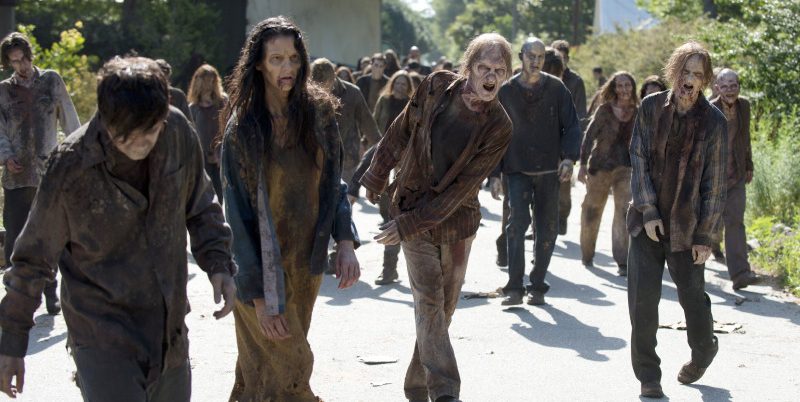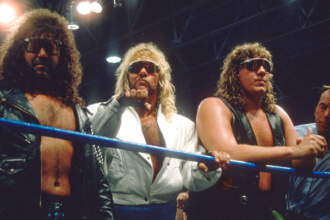Save Your Campaign from the Holidays

It’s Halloween this week! My campaign is taking a week off from our main campaign and we’re planning to play a Halloween one-shot. Thanksgiving, Christmas, and the New Year are all right around the corner too. Holidays can create challenges for GMs trying to run a weekly campaign during the chaos at the end of the year. Even with so many of us playing online in 2020 due to COVID-19, scheduling around holidays is still likely to provide challenges. Usually, the holidays are a busy time full of holiday parties, visits with local friends and relatives, and dreaded holiday travel. With COVID-19 creating restrictions for so many of us, a group might even find that it has more gaming time than ever this year. Whatever your situation, these 6 tips will help you save your campaign from the holidays.
1) Run a One-Shot
If you know in advance that an upcoming session is going to be missing a few players due to a holiday or some of you have time for an extra session, you might want to schedule a one-shot, maybe even inviting some former players or friends looking to try out a tabletop RPG for the first time.
These short adventures are usually run over a single session. The benefits of running a one-shot are:
- allows inexperienced GMs to take a turn running a session, giving the main campaign GM a break to be a player
- allows players to try out new characters and come back to the main campaign ready to play their PC again
- allows everyone to try out different genres such as sci-fi, horror or steampunk without having to invest in an entire campaign the group might hate
- allows everyone to try out different rule systems without moving the main campaign to a new ruleset that might not work for the group
- a chance for the group to just have fun with something different than the regular campaign
2) Run a Side Quest
Another way to keep your gaming group playing during the holidays is to schedule a side quest. If your players are not interested in trying out those shiny new rules or letting another GM take a turn, then some side quests can fill in a scheduling gap nicely. Use side quests to provide one of all of these for your players:
- a way to play out a story that is important to the background of a PC
- focus on downtime activities like building a fortress, setting up a business, or even running for a leadership position to run a guild, secret society, city hall, or whatever
- a quest to discover information about a magic item
- a mission that acts as training for a new class power or to explain how new spells were learned
- a one-shot with current PCs (with new PCs or even existing NPCs) to explore another location or point in the history of your campaign world
Just make sure that missing players miss out on experience points, magic items, or important plot developments and that a player doesn’t have their PC from the main campaign die.
3) Bring the Holidays Into Your Campaign
This is no reason to ignore the holidays, bring them into your game. Whether it’s your regular campaign or a one-shot, you can embrace our real-world holidays in your game. Try a holiday-themed adventure featuring feasts, winter festivals, gift-giving, Yule, Santa, Krampus, you name it.
- A Halloween one-shot can be a great way to handle some players missing the game due to taking kids trick-or-treating and parties. You could even make it a special tradition, like Ravenloft creator Tracy Hickman who runs a gothic horror adventure in the setting he created each year. Go into full Halloween mode with costumes, maybe even dressing up as their PC (even if you can only share your costumes via video this year).
- I ran The Darkest Night a couple of years ago, which is a Christmas themed adventure where players battle an ancient evil to save Krinklefest (or Santa vs. Krampus).
- Critical Role (a super popular D&D actual play for those who haven’t heard of it somehow) often has the players attending a Winter’s Crest Festival, which has become a tradition for the group.
4) Plan to Take a Break
Sometimes a little break from the campaign for everyone can be a good thing. If you know that you and most of your players are going to be away, just agree to take a planned break. Trying to push the story along with half your group is less fun for everyone at the table and not fair to the missing players. Don’t force the game, just agree to take a planned break. Missing a couple of sessions at the end of the year can be a chance for you as the GM to get your creative juices flowing again or to even get ahead of the players with some extra prep time. Try to end the last session on a cliffhanger or resolve something important, creating a memorable point to return to in a week or two (just like with TV show during sweeps or a mid-season finale). Take a break with a strong finish and avoid limping along through the end of the year with half your group.
5) Use a Virtual Tabletop
Maybe the holidays are a time when you usually run a special game with friends or family or you get together with your group for one or more longer marathon sessions. Many of us have already moved towards using a virtual tabletop in 2020 like Roll20 or Fantasy Grounds. If you haven’t had a chance to play as much as you like this year, maybe the holidays can give your group a chance to try and figure out this online thing. If used correctly, you might even find that the virtual tabletop makes tracking initiative and calculating rolls faster than using physical dice.
If your group is lucky enough to be able to meet face to face in 2020, but won’t be able to get together face to face during the holidays, a virtual tabletop can help make this happen. VTTs can also be used to enable a player who can’t attend in person to join the rest of the tabletop group.
If your group is using a mix of in-person and remote for a session:
- Being the remote person away from the table can be frustrating, as it can be difficult to hear and follow exactly what is going at the face to face table.
- To create a level environment it’s a good idea to have all players (even those in the same room) use the virtual tabletop for all rolls, sharing maps/artifacts and combat.
6) Create a Shared Schedule
Our group keeps it simple and uses Discord to RSVP and schedule sessions on the same server we use for our game’s audio. In the past, I’ve also used shared schedulers and Roll20’s message board. Whatever I am using, I try to make sure everyone knows the schedule for the next 4-8 weeks. Whatever time of year it is, the schedule lets us know in advance if people are away so we can plan for breaks, one-shots, side quests, or whatever, avoiding the dreaded 2 or 3 people showing up and waiting an hour for everyone else to not show before calling it a night. If you can usually survive without a schedule, using a schedule around the holidays might still be a big help.
All the best this Halloween and beyond!



